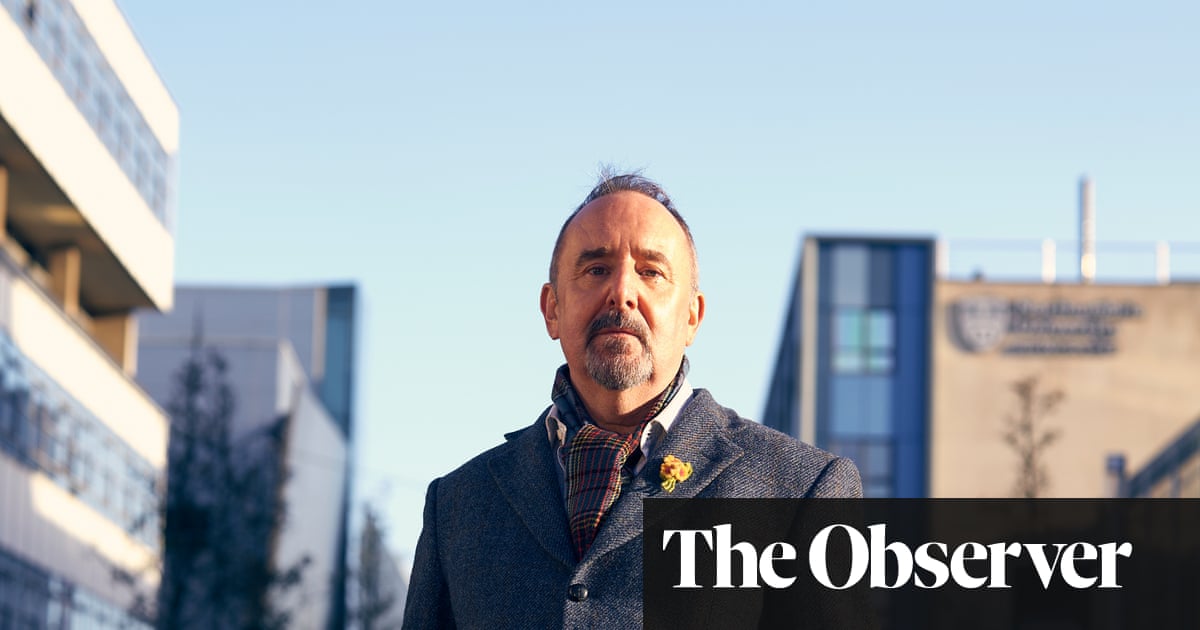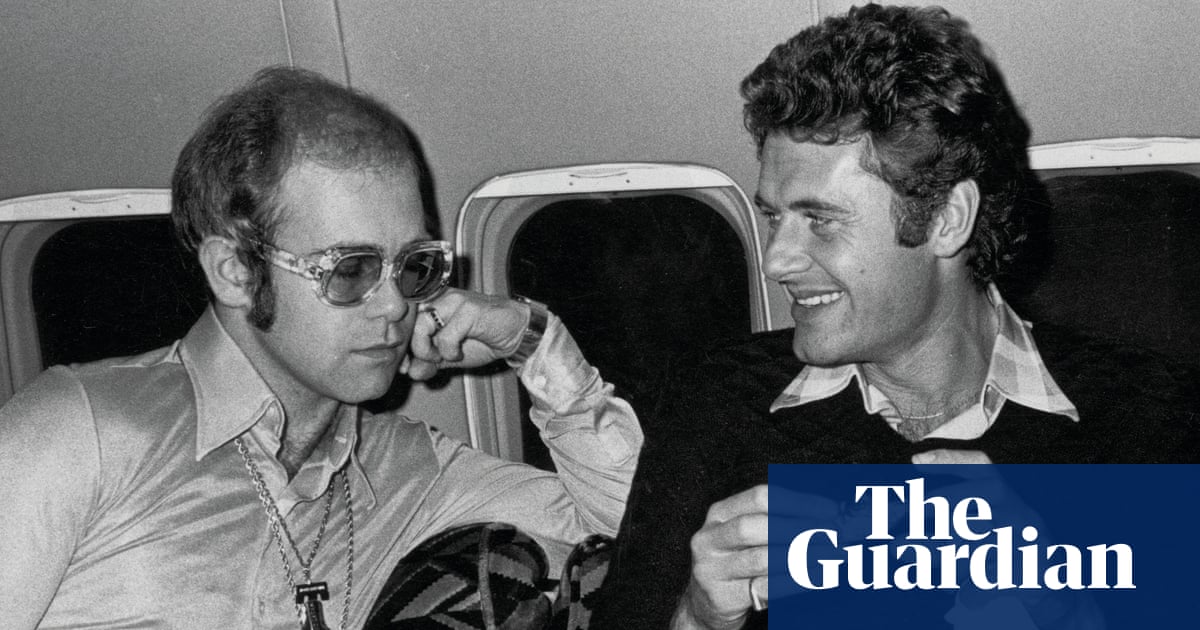
ecently, I experienced one of those moments when disparate bits of knowledge suddenly realign, and a connection appears, as glaringly obvious as it was hidden a moment ago. I was listening to Fritz Wunderlich’s glorious rendition of Beethoven’s song cycle, An die ferne Geliebte (To the distant beloved). Those six songs are an outpouring of Romantic lyrical longing felt by the protagonist, facing the unbridgeable distance between him and his beloved.
If it had not been ennobled by the purity of Beethoven’s music, the cycle’s poetic imagery could have been banal. The verses speak of hillsides and valleys, birds and brooks, clouds and sunsets, all invoked as symbols of the singer’s longing, or as potential messengers from him to his beloved. Yet in the sixth and last song, a stronger link between them is found – music itself. The singer asks his beloved to sing the songs he himself had sung, artlessly, from the fullness of his heart. Then, he says, whatever has separated them will fade and their hearts will find each other. Beethoven expresses this thought first with a heartachingly beautiful melody, loving and tender, and then with near-delirious exuberance, depicting the joining of hearts.
I must have heard this song dozens of times, but all of a sudden this image – music as an intangible link between hearts, connecting people who cannot be near each other – felt like a bolt out of a clear sky, bringing Beethoven closer to me in 2020 than a whole year of exploring his music has done. Rather than entering the musical worlds that he created, this, I felt, brought Beethoven into mine: a year lived under the shadow of physical separation from those we love, when streaming music from home was often the only way musicians could reach out, asking music to act as our messenger, too, bridging heart to heart, smartphone to smartphone. And having gone without live concerts for several months, and missing them terribly, both as a performer and a listener, I, for the first time, had an inkling of what it must have meant for Beethoven, whose deafness cut him off from meaningfully experiencing live music in the last decade of his life.
That Beethoven became the musical companion of our own isolation was pure coincidence. 2020, the year of the pandemic, also happened to be the 250th anniversary of Beethoven’s birth. This is as round a date as one could hope to productively experience in a lifetime, and the international classical music community was preparing a Beethoven cornucopia out of this world. Symphony cycles, string quartet cycles, sonata cycles, opera productions, festivals, documentaries, podcasts – 2020 was to be saturated with Beethoven’s music. But as concerts were cancelled around the globe and the outward trappings of our planned celebration fell away, it was precisely Beethoven’s music that remained with us. And with a near-total upending of our daily lives, it was perhaps inevitable that, alongside a reassessment of our own plans and priorities, we had begun to listen to Beethoven with different ears.
To be clear, Beethoven needed and needs no reassessment. His music is immortal and inextricably interwoven with humanity’s heritage. For so many of us, he is as obvious as air. He belongs to a tiny handful of timeless giants who make us cheer in wonder or fall silent in disbelief, so unreachable they are in the blazing radiance of their genius. And yet he can make us love and accept ourselves that little bit more, simply for belonging to the same humankind as him.
A vast treasure trove, Beethoven’s creativity covers every imaginable emotion and mood. Is it a high-tension drama we desire? The Fifth Symphony or the Appassionata will thrill us from the first notes. A deep tragedy? The Funeral March in the Eroica Symphony can rival Shakespeare in greatness of spirit. An alluringly gloomy gothic soundscape? The Moonlight is there for us. A dose of crazily modern polyphony? The Große Fuge continues to shock and bewilder us to this day, 194 years after its composition.
But when day after day this year brought turmoil with little hope of respite, we began cherishing different facets of Beethoven’s music and character, sides that might have held less immediate appeal in safer, cosier days. For me, as I was working my way through the cycle of 32 sonatas, the greatest discovery – which very quickly became a real source of mental support – was the unshakeable, unstoppable life energy I began sensing in everything Beethoven wrote. No matter the mood, no matter the emotional colour, there was life and warmth underlying every note I played or listened to. His music pulses with it. I must have felt it before, but have either not paid it enough attention, or more likely took it for granted. In 2020, it was unmistakable and vastly reassuring.
I could now also strongly relate to what my friends from the Pavel Haas Quartet referred to as the “sense of a protagonist”. In Beethoven’s music, someone is always acting; fate isn’t succumbed to or simply described, it is wrangled with and bested. This sense of musical agency was a wonderful (if escapist) antidote to the feeling of powerlessness that often threatened to overwhelm me during the spring lockdown months.
And from a purely hedonistic point of view, I grew addicted to the sheer beauty of Beethoven’s slower major-key movements. Right from the earliest pieces he published, he searched for poetic beauty; his quest reached a transcendent, visionary peak in his last piano sonatas and late string quartets. Listening to the slow movement of the A minor quartet, Op 132, written after Beethoven recovered from a serious illness that he feared was fatal, was a transformative, soul-purifying experience almost beyond words. For me, this movement on its own can answer the question of why Beethoven is still needed or relevant in 2020 – or in any year, for that matter.
My last time playing with orchestra before the start of lockdown was performing the cycle of Beethoven’s five concerti in Brussels, in a full hall, warmly surrounded by the orchestra sitting in now barely imaginable closeness. My first time playing with orchestra since then was just two months ago, performing Beethoven’s 4th concerto in Liverpool, before a small audience in the majestic Philharmonic Hall, surrounded by my very dear colleagues of the Royal Liverpool Philharmonic Orchestra, sparsely spread over a socially distanced stage. In many ways, this second experience was among the most moving I’ve ever had. After this year, a live concert wasn’t a given, creating music with other musicians wasn’t a given. And playing the first soft G major chords into the silence of 200 people who came in person to listen to us perform Beethoven’s most intimate and personal concerto was, by far, the least given thing of all. 2020 transformed all of those into something precious, something that now feels fragile, in need of love and protection.
Having lived through 2020 with Beethoven as my constant companion, I draw hope both from his music and from the indomitable spirit that stood behind it. A spirit that allowed Beethoven to conceive and bring into this world radiant music even when facing the greatest personal or external adversities (I can’t help but think of the “Emperor” piano concerto, written during the bombardment of Vienna in 1809). Beethoven’s music, as I see it now, is overwhelmingly life-affirming and certain that, despite any darkness, despite any tribulation, a new, brighter day will come.
• The first six volumes of Boris Giltburg’s Beethoven piano sonata project (nos 1 to 22) are out now on Naxos; watch videos of him performing them and read his thoughts on each work at beethoven32.com.












